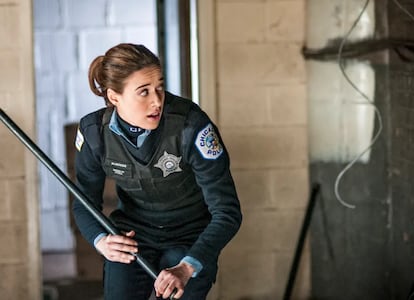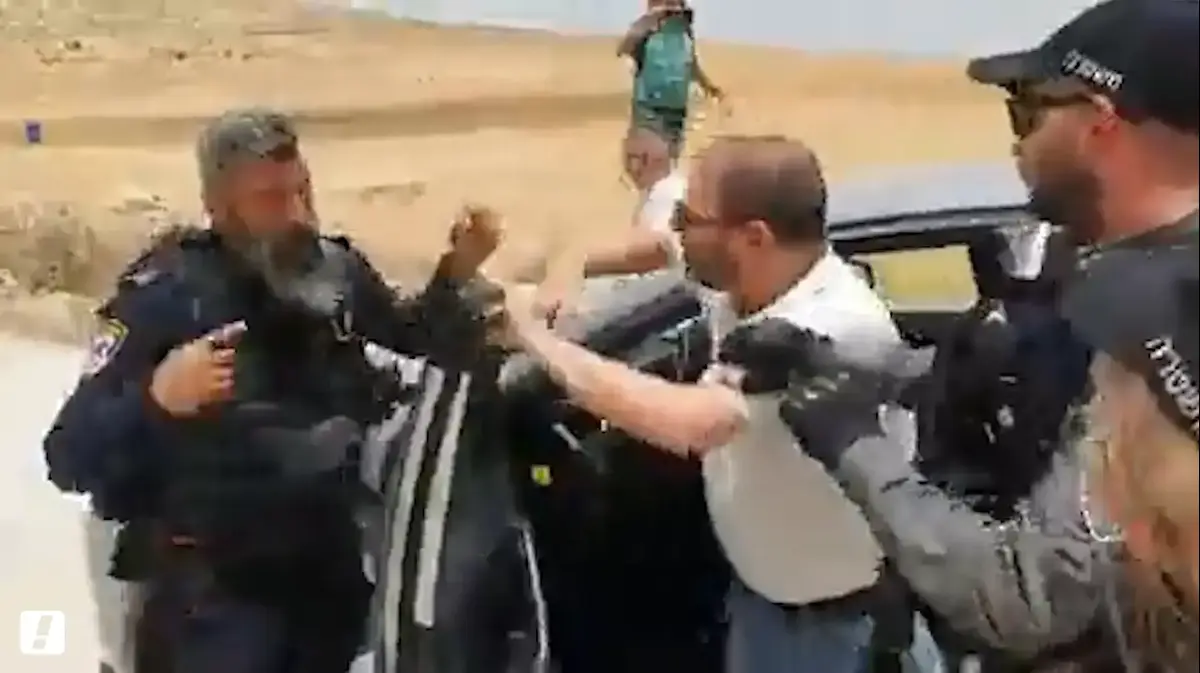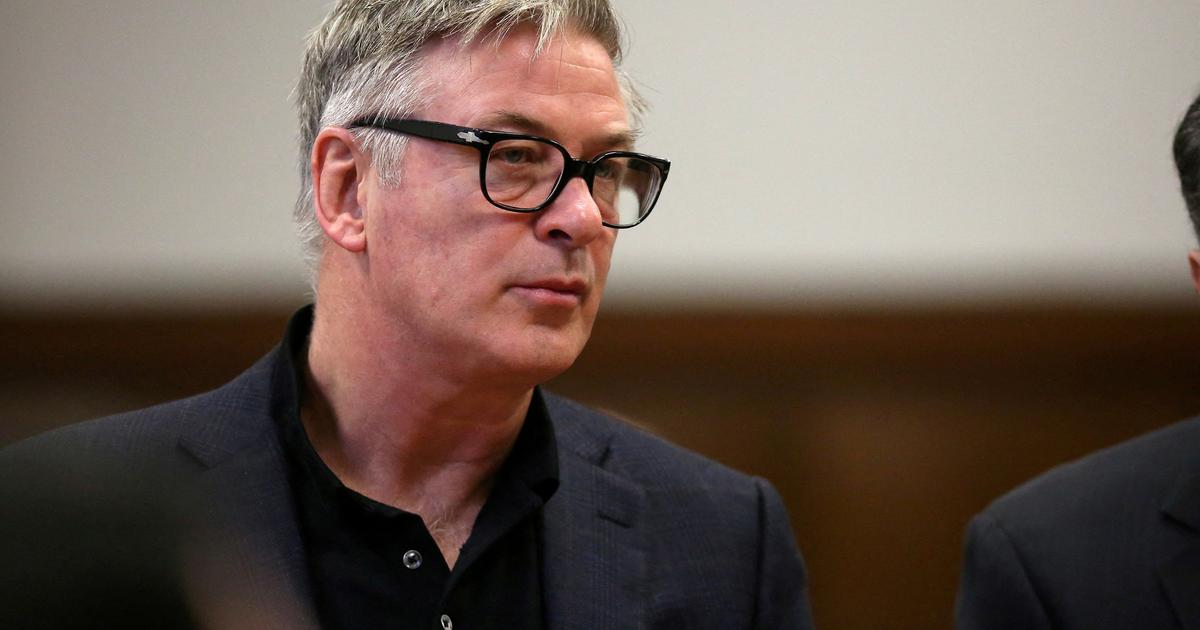This article was going to consist of a comparison between a series by a cult author (
The City Is Ours
, by David Simon) and
Chicago PD
, a mass product, pure more superficial and light entertainment, a series to watch without thinking, a real pleasure. guilty.
In theory.
Two police fictions, two seemingly distant worlds.
However, the idea has fallen by the wayside.
The City Is Ours
(HBO Max) is the true story of a police unit that instead of serving and protecting threatened, fleeced and abused citizens and criminals in Baltimore to enrich themselves.
It is the return of Simon, again accompanied by Georger Pelecanos, to the city of
The Wire
, to the great story of contemporary misery, police and political corruption and racism.
From the credit titles, there is an artistic and political will (this happens for a reason and in a context and has consequences).
The realism of the series splashes the viewer, uncomfortable and fascinated by the show, hooked on the character of Sergeant Wayne Jenkins —played by a hypnotic and long-tongued Jon Bernthal— also dragged along by various parallel stories armed with care.
The narration jumps in time and relies on an audience that will not get lost along the way.
The series will gain appreciation over time, as happened to
The Wire
, which is now, yes, 20 years old.
An image of 'The city is ours'.HBO Max
Many of those who have enjoyed this series or other productions by Simon and Ed Burns (with scripts by Pelecanos, Richard Price or Dennis Lehane, who is already a level) will believe that
Chicago PD
is not for them.
However, the series created by Dick Wolf (owner of an entire franchise based in the city with hits like
Chicago Med
and
Chicago Fire
) is much more than meets the eye.
In the first six minutes of the first episode, we see Chicago police intelligence sergeant Hank Voight (a huge Jason Beghe) dragging a suspect into a vacant lot to beat out the name of a drug dealer responsible for several deaths and steal $4,000. .
Later, he talks to his unit and tells them, with that characteristic raspy voice: "You tell me the truth so I can lie for you."
In these two details, the pact with the darkness of a complex and uncomfortable character is defined and that sustains the series with his excesses, his looks and silences as a response.
There are closed plots and cases that are almost always resolved within the same episode.
Boom, boom, boom and something else.
Of course, Voight is surrounded by excellent secondary, parallel stories of a police world full of them.
I prefer the faithful squire Alvin Olinsky (a taciturn Elias Koteas), with the grumpy Sergeant Trudy Platt (an Amy Morton who knows how to add the necessary touch of humor to avoid falling into melodrama) and the character who grows better and more over time. throughout the seasons: patrol boat Kim Burgess (Marina Squerciati);
but there are a good handful of them to choose from and all of them sustain the narrative scaffolding with their lives.
Dickens already did it, yes, and we have already seen Michael Connelly do it with Harry Bosch and Los Angeles, in books and on television, for example.
Oh, and don't get attached to anyone: as in other series that go on over time (and this one is in its ninth season, which can be seen on Movistar Plus+; Amazon Prime Video includes the first seven in its catalog) the writers don't They have mercy on the characters.
The still patrolwoman Kim Burgess (Marina Squerciati) in a moment of the second season of 'Chicago PD'.
"We don't always do the right or heroic thing, we do what is most honest for the character," Wolf said in 2018 in this newspaper.
And that is one of the hits.
There are happy endings, resolved cases and decisions made under the prism of the law, but also abuses, shortcuts and traps to seek justice without waiting for the system.
And if the victim is a police officer or family member, Western law directly governs.
All members of the unit, starting with Voight, have a pact with the dark side.
But let no one believe that they are corrupt.
That would be too simple.
“You have no idea who I am,” Voight tells a police officer who questions him at the end of the second season.
The viewer, who sees how he combines beatings, torture and bragging gestures with his determination to redirect lost lives (one of them,
within your own unit) either.
He acts as if the city is his, sometimes he resembles the Wayne Jenkins of
The city is ours
, but unlike this one, Voight doesn't care about getting caught, and he doesn't want to get rich, what he cares about is justice.
His justice.
And the show?
All over.
In each chapter there are shootouts, deaths, chases, assaults, beatings, whatever you want.
The action is very well shot and proves once again that Chicago is an ideal setting for fiction of all kinds.
In that city there are about 400 homicides a year, but according to those addressed by this unit, there should be 10 times more.
Nor is it normal that the same patrol officers are always close to the crime, but these and other details, which will annoy the most fussy or make the real police laugh, are aspects of reality that can be sacrificed for the benefit of the narration. .
Hank Voight (Jason Beghe), in one of those moments that replaces a verbal response with an icy stare.
Quality entertainment is an art and those behind
Chicago PD
know it.
When they try plots from that parallel universe that constitutes the life of each agent and the viewer feels that they do not work, they have already realized it and dilute them until they disappear in successive chapters.
There is a lot of testosterone in this series, true, but those who sustain part of the plot both at the police station and in the intelligence unit or in the private lives of the agents are women.
The writers sometimes slide down the slope of morality and easy satisfaction, but they know how to stop in time.
At the end of the second season, after a climactic moment with a very high-level double chapter, a classic turning point that will mark the characters from now on, the unit faces some policemen from another district who are dedicated to robbing the drug dealers
This ties Chicago PD
's argument
to
The City Is Ours
.
The series, in the end, do not have much to do.
The budgets of its creators, either.
But, paradoxically, they are not so far from each other in essentials.
And this brings us to the title.
There's a lot of pleasure, but no guilt in getting hooked for hours on end in this police drama.
Long live Voight and the
Chicago PD
officers .
You can follow EL PAÍS TELEVISIÓN on
or sign up here to receive
our weekly newsletter
.
50% off
Subscribe to continue reading
read without limits
Keep reading
I'm already a subscriber









